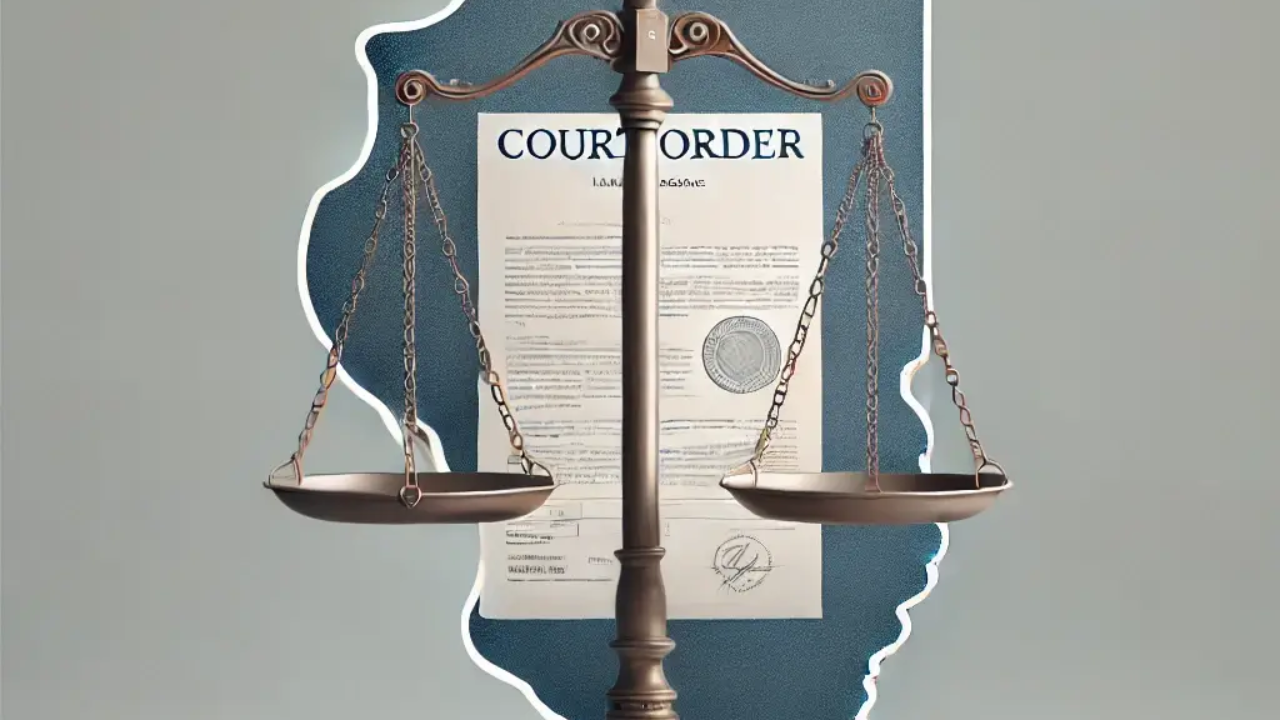If you’re dealing with an ex-spouse who is not complying with a court order, you’re not alone. Many individuals find themselves in frustrating situations where their ex ignores legal obligations, whether it’s related to child support, alimony, or visitation rights. Understanding how to enforce these orders in Illinois is crucial to protecting your rights and ensuring that justice is served.
Understanding Court Orders in Illinois
Before you can enforce a court order, it’s important to ensure that the order is clear and specific. A court order must explicitly state the required actions using definitive language like “shall” or “must.” Orders that use ambiguous language such as “should make every effort” may not be enforceable, as they imply discretion rather than obligation.
Types of Enforceable Court Orders
Child Support Orders: Mandates regular payments to support the child’s needs.
Spousal Support (Alimony): Financial assistance provided by one spouse to the other post-divorce.
Custody and Visitation Orders: Outlines the custody arrangement and visitation schedule for the children.
Steps to Enforce a Court Order
Once you confirm that you have a clear and enforceable order, follow these steps:
1. File a Petition for Rule to Show Cause
A Petition for Rule to Show Cause is appropriate when your ex-spouse has violated a clear court order. This legal action requires them to appear in court and explain why they have not complied with the order. If the judge finds that the order was violated without valid justification, they may hold your ex-spouse in contempt of court.
Example: If your ex-spouse fails to make child support payments, you can file this petition to compel payment. The judge may then set a “purge,” which is an amount or action your ex must fulfill to avoid further penalties.
2. File a Motion to Enforce the Court Order
If the violation is less clear or if the order needs further clarification, you can file a Motion to Enforce. This motion requests the court to take action to ensure compliance with the order, such as reordering the ex-spouse to comply or modifying the original order to be more specific.
Example: If the order is vague about visitation logistics, you might request the court to clarify the terms to avoid future disputes.
What Are the Legal Consequences of Non-Compliance?
Non-compliance with a court order can have serious consequences in Illinois. A judge may:
- Hold the non-compliant party in contempt of court, which can lead to fines, jail time, or both.
Impose sanctions such as wage garnishment or property liens. - Modify the existing order to include automatic consequences, like wage withholding for missed payments.
Proactive Measures to Avoid Issues
Incorporating consequences directly into the court order can help avoid future disputes. For example, you might include a provision that if child support is not paid by a certain date, a Notice of Withholding against the ex-spouse’s employer will be issued automatically.
FAQs About Enforcing Court Orders in Illinois
Q: What can I do if my ex-spouse refuses to pay child support?
A: You can file a Petition for Rule to Show Cause, which may result in the court holding your ex-spouse in contempt and enforcing payment.
Q: Can a court order be modified if my ex is not complying?
A: Yes, the court can modify the order to ensure it is clear and enforceable, making it easier to compel compliance.
Take Action: Protect Your Rights
If you’re facing an ex-spouse who refuses to comply with court orders, don’t wait—take action to protect your rights. At Anderson Boback & Marshall, our experienced family law attorneys in Chicago are ready to help you enforce your court orders and ensure justice is served. Contact us today to schedule a consultation and take the first step toward resolving your legal challenges.















